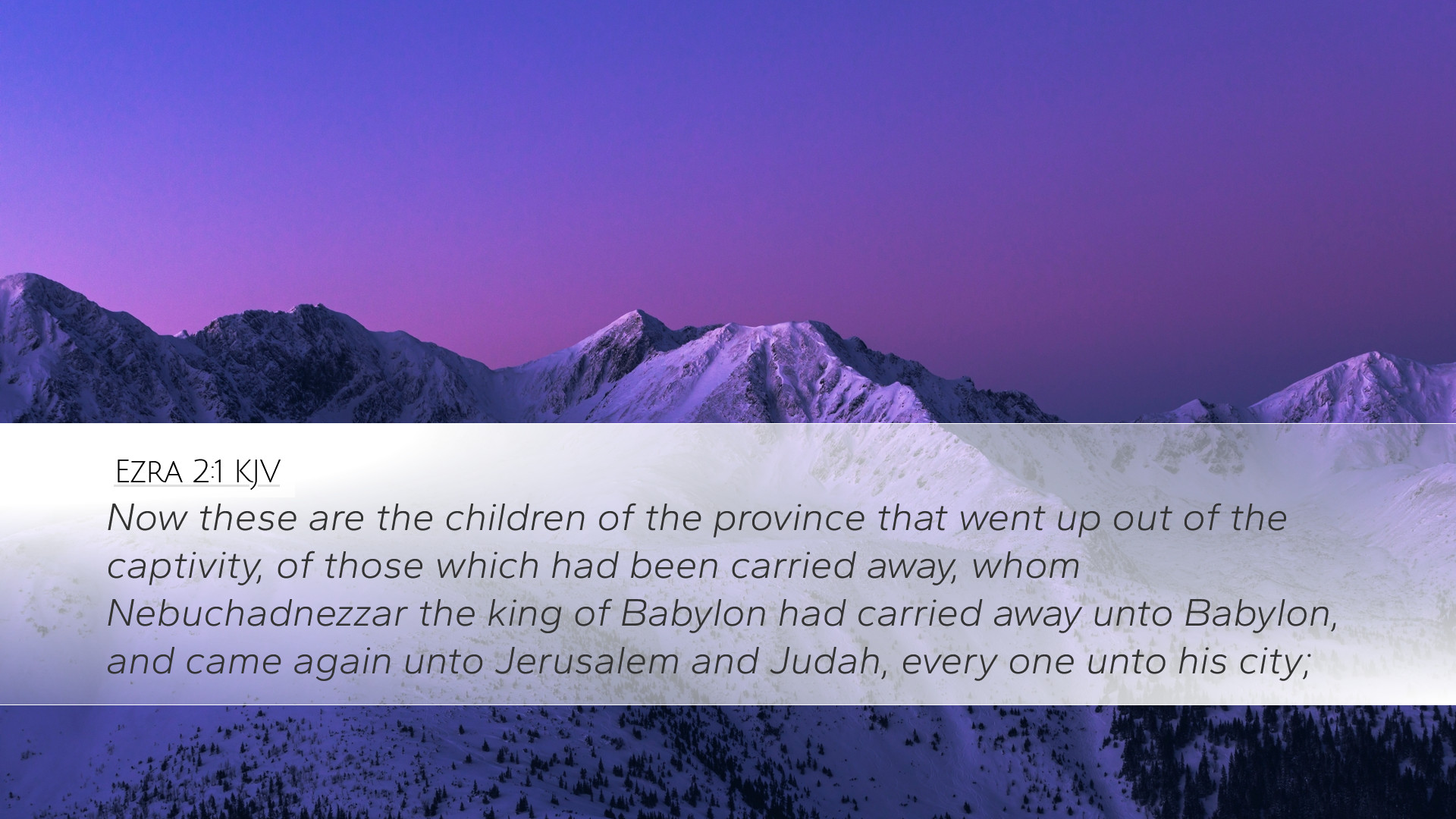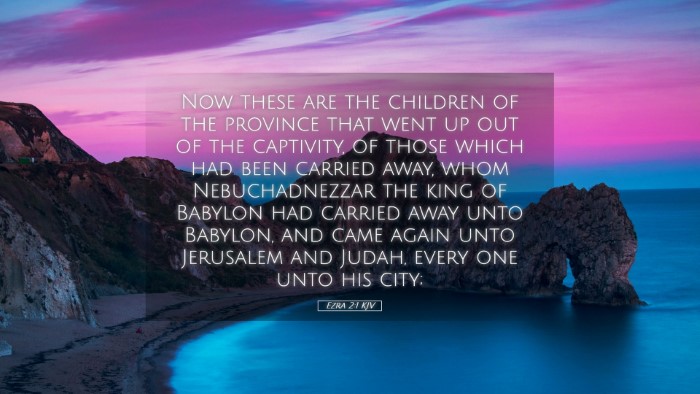Commentary on Ezra 2:1
This verse serves as an introduction to the list of those who returned from the Babylonian exile, establishing an essential context for the subsequent rebuilding of the temple and restoration of the Jewish community in Jerusalem. Understanding Ezra 2:1 requires us to explore its historical background, significance, and the implications for theological reflection.
Historical Context
As we delve into Ezra 2:1, it is imperative to consider the historical circumstances surrounding the Israelites' return from Babylonian exile. This period marked a pivotal moment in Jewish history, beginning with the decree of Cyrus the Great, which allowed the exiled community to return to Jerusalem and rebuild the temple.
Matthew Henry emphasizes the significance of God’s sovereignty in orchestrating the return. He notes that God raised up Cyrus and that this was a fulfillment of prophecy, specifically the word of Jeremiah, affirming that their captivity would have an end.
Albert Barnes complements this view by remarking on the importance of the exiles' identity. The return was not merely physical but also spiritual, signifying a reclamation of their covenant relationship with God and a commitment to follow His statutes once again.
Meaning of the Verse
Ezra 2:1 states: "Now these are the children of the province that went up out of the captivity, of those which had been carried away, whom Nebuchadnezzar the king of Babylon had carried away unto Babylon, and came again unto Jerusalem and Judah, every one unto his city;" (KJV).
- The Concept of Return: The verse strongly emphasizes the act of returning. Adam Clarke notes that the term "went up" implies a spiritual ascent as well as a physical movement, reflecting the idea that returning to Jerusalem was part of returning to a relationship with God.
- Community and Identity: Matthew Henry highlights that the list that follows in the chapter serves to remind the returning exiles of their ancestry and identity. Every individual returning is connected to a larger community and heritage.
- Divine Providence: The verse elicits a profound sense of divine intervention and providence. The return is presented as part of God's plan for the restoration of His people.
Theological Significance
From a theological perspective, Ezra 2:1 provides a foundation for understanding the continuity of God's promise to His people. This continuity is crucial for interpreting the rest of the biblical narrative regarding Israel's restoration and the fulfillment of God's covenant.
Albert Barnes suggests that this return itself acts as a symbol of hope: just as the captives were offered a chance to return physically, we are offered the possibility of spiritual restoration. This theme of return is echoed throughout the Bible, making this verse an important touchstone for understanding the universal nature of God's redemptive plan.
Implications for Ministry and Scholarship
Pastors and theologians can derive valuable lessons from Ezra 2:1. The themes of identity, community, and divine providence can be woven into sermons and teachings that inspire congregations to recognize their place within the ongoing story of God's people. Understanding the historical and spiritual significance of this return prompts reflection on modern issues of exile, belonging, and hope.
Furthermore, scholars are encouraged to approach this verse not only as a historic account but as a narrative that shapes theological discourse. The discussion surrounding the exiles’ return opens avenues for deeper studies on covenant theology, ecclesiology, and the narrative arc of redemption that spans the entirety of Scripture.
Conclusion
In summary, Ezra 2:1 encapsulates rich historical and theological themes that resonate deeply with ministers, students, and scholars alike. The verse invites us to reflect on our identity as God's people, the importance of community, and the assurance that God actively works in history to fulfill His promises. As we consider the implications of this verse, let it inspire a renewed commitment to faithfulness, both personally and communally, as we navigate our own journeys of return to God.


